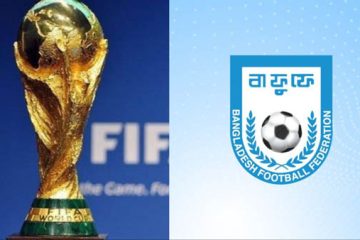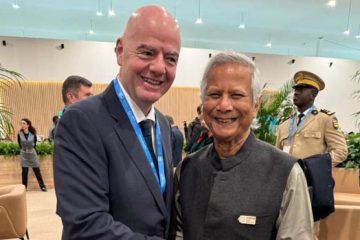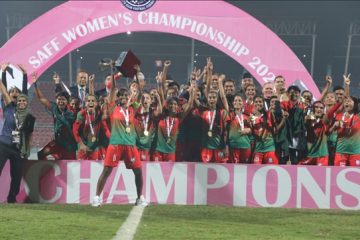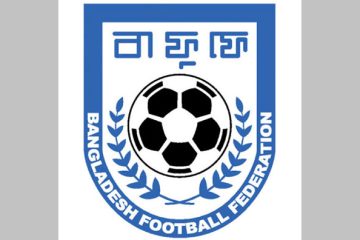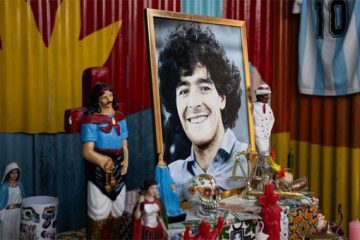AFC president Mohamed bin Hammam has rejected FIFA’s instruction to reinstate the voting rights of five countries at next week’s crucial congress of the regional football body, officials said.
FIFA’s legal director last week told the AFC that Kuwait, Laos, East Timor, Afghanistan and Mongolia had the right to vote in deciding who will fill the bitterly contested FIFA executive committee seat currently held by Bin Hammam.
It becomes vacant on May 8, and Bahrain’s Sheikh Salman bin Ebrahim Al Khalifa is challenging the Qatari. Bin Hammam has said he will step down as AFC chief if he loses, despite his term running until 2011.
Fellow FIFA executive commitee member Junji Ogura from Japan, who opposes Bin Hammam, said that despite the legal advice the voting issue has been put on the AFC executive committee agenda on May 7.
“The AFC president completely ignores FIFA’s opinion and that should never be tolerated,” Ogura said in a letter to the FIFA secretary general Jerome Valcke that was seen by AFP.
“It is a clear indication of the serious and problematic situation that awaits us.
“He was even quoted in an Arabic newspaper to have said that while he would obey the rules of FIFA, he would not practice FIFA’s legal opinion this time.”
The impending ban on the five nations, who support Sheikh Salman, was decided by the AFC’s ad-hoc legal committee.
But FIFA said the committee has “no competence to take any decision with legal effect”.
“Neither the AFC executive committee nor any other AFC committee has the power to decide about such issues,” said FIFA legal director Marco Villiger, an opinion repeated by Valcke in his reply to Ogura.
Four of the associations-Laos, East Timor, Afghanistan and Mongolia-were told by the AFC they could not vote because they had not participated in at least three Asian competitions in the past two years.
FIFA ruled that they had, making clear that under-13 and under-14 competitions must also be considered.
As for Kuwait, they were informed by the AFC that it did not recognise the temporary committee that is currently running its football affairs.
But Villiger said the Kuwait Football Association was recognised by FIFA after a suspension it was under for political interference was provisionally lifted, and it had full voting rights. Sheikh Salman said the decision to put the voting issue on the AFC agenda was a reflection of Bin Hammam’s rule.
“This is symptomatic of how Mr Bin Hammam seeks to dominate Asian football in his undemocratic way,” said the sheikh, who has previously referred to his rival as “a dictator”.
“Yet again he is using doubtful techniques to disrupt the AFC’s most important election in many years. He seems prepared to do anything to gain an advantage-instead of confronting his record in power.”
Several key proposals made by Bin Hammam have proved to be controversial, and helped spark the move to oust him.
These include his plan to move the AFC headquarters out of Malaysia, a proposed 12-year marketing deal with World Sport Group and amendments to the AFC statutes that would consolidate his power.
Bin Hammam or Sheikh Salman need a simple majority of the AFC’s 46 members to win.

